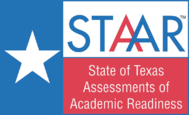Related Research Articles

Standardized test is a test that is administered and scored in a consistent, or "standard", manner. Standardized tests are designed in such a way that the questions and interpretations are consistent and are administered and scored in a predetermined, standard manner.
The High School Proficiency Assessment was a standardized test that was administered by the New Jersey Department of Education to all New Jersey public high school students in March of their junior year until 2014-2015 when it was replaced by the PARCC. Together with the New Jersey Assessment of Skills and Knowledge, which was administered in grades 3–8, the HSPA was part of a battery of tests used to assess student performance in New Jersey's public schools.
The TAAS, or Texas Assessment of Academic Skills, was the third standardized test used in Texas between 1991 and 2002, when it was replaced by the TAKS test from 2003 to 2013. It was used from grades 3, 5, 7, 9, and 11. Passing the Grade 11 level was required for graduation, but many opportunities for retesting were available. The implementation of the TAAS was the first time a state-mandated exam was required to be passed for graduation. There were many alternative routes available for students unable to pass the TAAS.

The Texas Assessment of Knowledge and Skills (TAKS) was the fourth Texas state standardized test previously used in grade 3-8 and grade 9-11 to assess students' attainment of reading, writing, math, science, and social studies skills required under Texas education standards. It is developed and scored by Pearson Educational Measurement with close supervision by the Texas Education Agency. Though created before the No Child Left Behind Act was passed, it complied with the law. It replaced the previous test, called the Texas Assessment of Academic Skills (TAAS), in 2002.
The California Assessment of Student Performance and Progress (CAASPP), known until February 2014 as the Measurement of Academic Performance and Progress (MAPP), measures the performance of students undergoing primary and secondary education in California. In October 2013, it replaced the Standardized Testing and Reporting (STAR) Program.
The Iowa Assessments also known informally as the Iowa Tests, formerly known as the ITBS tests or the Iowa Basics, are standardized tests provided as a service to schools by the College of Education of the University of Iowa. Developers Everett Franklin Lindquist, Harry Greene, Ernest Horn, Maude McBroom, and Herbert Spitzer first designed and administered the tests in 1935 as a tool for improving student instruction. The tests are administered to students in kindergarten through eighth grade as part of the Iowa Statewide Testing Programs, a division of the Iowa Testing Programs (ITP). Over decades, participation expanded and currently nearly all school districts in Iowa participate annually in the program, as do many other school districts across the United States. In a cooperative relationship, participating schools receive ITBS test materials, scoring and reporting services and consultation in the use of ITBS for instructional purposes, and ITP utilizes participation by schools in research and test development. Both the ITBS and Iowa Tests of Educational Development (ITED) were revised in the 2011–2012 school year. They were rebranded the Iowa Assessments. In 2016–2017, Iowa Assessments will roll out their new testing program, Next Generation Iowa Assessments.
The New Jersey Assessment of Skills and Knowledge (NJASK) was a standardized test given to all New Jersey public-schooled students in grades 3-8 during (usually) March, April, or May, and was administered by the New Jersey Department of Education.

Homeschooling constitutes the education of about 3.4% of U.S. students as of 2012. The number of homeschoolers in the United States has increased significantly over the past few decades since the end of the 20th century. In the United States, the Supreme Court has ruled that parents have a fundamental right to direct the education of their children. The right to homeschool is not frequently questioned in court, but the amount of state regulation and help that can or should be expected continues to be subject to legal debate.
Asherton Independent School District was a public school district based in the community of Asherton, Texas (USA).
The Pennsylvania System of School Assessment (PSSA) is a standardized test administered in public schools in the state of Pennsylvania. Students in grades 3-8 are assessed in English language arts skills and mathematics. Students in grades 4 and 8 are also assessed in skills relating to natural science, including the field of data interpretation and analysis. Since 2013, high school students have taken the Keystone Exam in place of the PSSA for their standardized testing. The PSSA's were made by a company in New Jersey. The PSSA is written, owned and administered by Pearson Education. There are reporting categories for each subject which list eligible content to be tested in each grade. Assessment Anchors specify what is considered eligible content for each grade level tested. A Proficient or Advanced level is needed to be able to qualify as passing the PSSA.

Literacy in the United States was categorized by the National Center for Education Statistics into different literacy levels, with 92% of American adults having at least "Level 1" literacy in 2014. Nationally, over 20% of adult Americans have a literacy proficiency at or below Level 1. Adults in this range have difficulty using or understanding print materials. Those on the higher end of this category can perform simple tasks based on the information they read, but adults below Level 1 may only understand very basic vocabulary or be functionally illiterate. According to a 2020 report by Gallup based on data from the U.S. Department of Education, 54% of adults in the United States lack English literacy proficiency.
Texas Essential Knowledge and Skills (TEKS) are the state standards for the US state of Texas public schools from kindergarten to year 12. They detail the curriculum requirements for every course. State-mandated standardized tests measure acquisition of specific knowledge and skills outlined in this curriculum. It is also used in international schools outside of Texas. The TEKS are taught to students and within the end of the year, they take a standardized test based on the TEKS called the State of Texas Assessments of Academic Readiness.
DRC/CTB (CTB) was a publisher of educational assessment for the early learner, K–12, and adult basic education markets. DRC/CTB was a division of Data Recognition Corporation (DRC) until being fully merged into DRC's Educational Services division. From 1965 to 2015, the company was known as CTB/McGraw-Hill, a division of the McGraw-Hill companies, and prior to 1965 California Testing Bureau was an independent company.

An examination or test is an educational assessment intended to measure a test-taker's knowledge, skill, aptitude, physical fitness, or classification in many other topics. A test may be administered verbally, on paper, on a computer, or in a predetermined area that requires a test taker to demonstrate or perform a set of skills.

The State of Texas Assessments of Academic Readiness, commonly referred to as its acronym STAAR, is a series of standardized tests used in Texas public primary and secondary schools to assess a student's achievements and knowledge learned in the grade level. It tests curriculum taught from the Texas Essential Knowledge and Skills, which in turn is taught by public schools. The test used to be developed by Pearson Education every school year, although the most recent contract gave Educational Testing Service a role in creating some of the tests, under the close supervision of the Texas Education Agency.

In the United States, elementary schools are the main point of delivery of primary education, for children between the ages of 4–11 and coming between pre-kindergarten and secondary education.
The Texas Educational Assessment of Minimum Skills or TEAMS was the second standardized test used in Texas, from 1984 until 1990. It was used for grades 1, 3, 5, 7, 9 and 11. Students passing the test are no longer needed to take the exam. Passing the Grade 11, or Exit level, examination was required for graduation, but many opportunities for retesting were available. The TEAMS exam was replaced by the Texas Assessment of Academic Skills (TAAS) in 1990.

The Every Student Succeeds Act (ESSA) is a US law passed in December 2015 that governs the United States K–12 public education policy. The law replaced its predecessor, the No Child Left Behind Act (NCLB), and modified but did not eliminate provisions relating to the periodic standardized tests given to students. Like the No Child Left Behind Act, ESSA is a reauthorization of the 1965 Elementary and Secondary Education Act, which established the federal government's expanded role in public education.
References
- ↑ "Chapter 1. Historical Overview of Assessment in Texas" (PDF). Technical Digest 2020–2021. 2021. Archived from the original on 3 March 2022. Retrieved 6 April 2022.
{{cite book}}:|website=ignored (help)